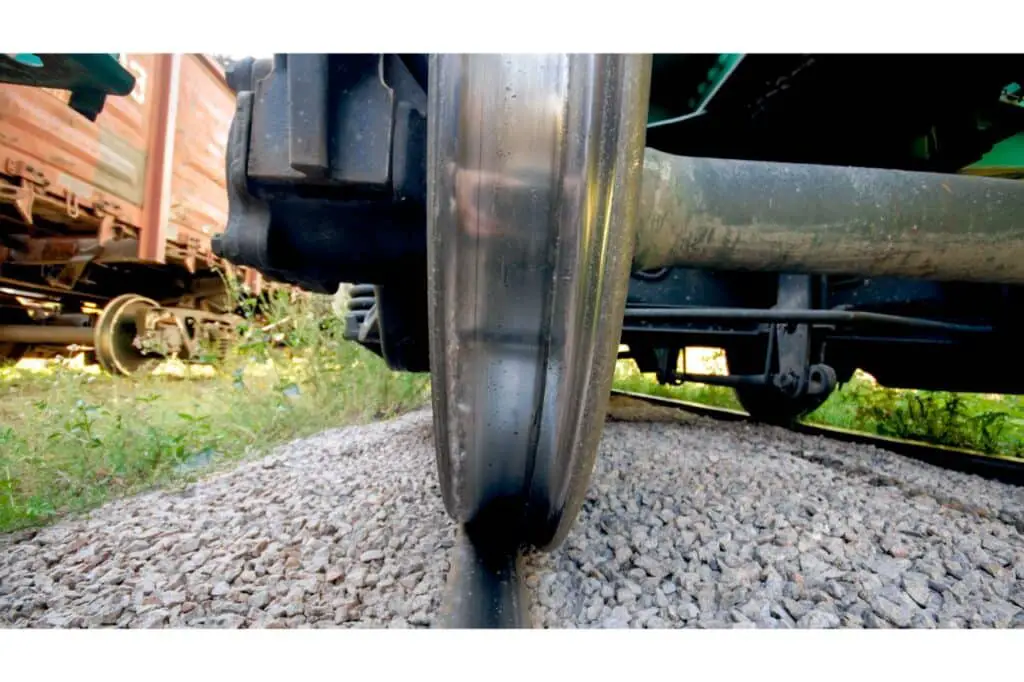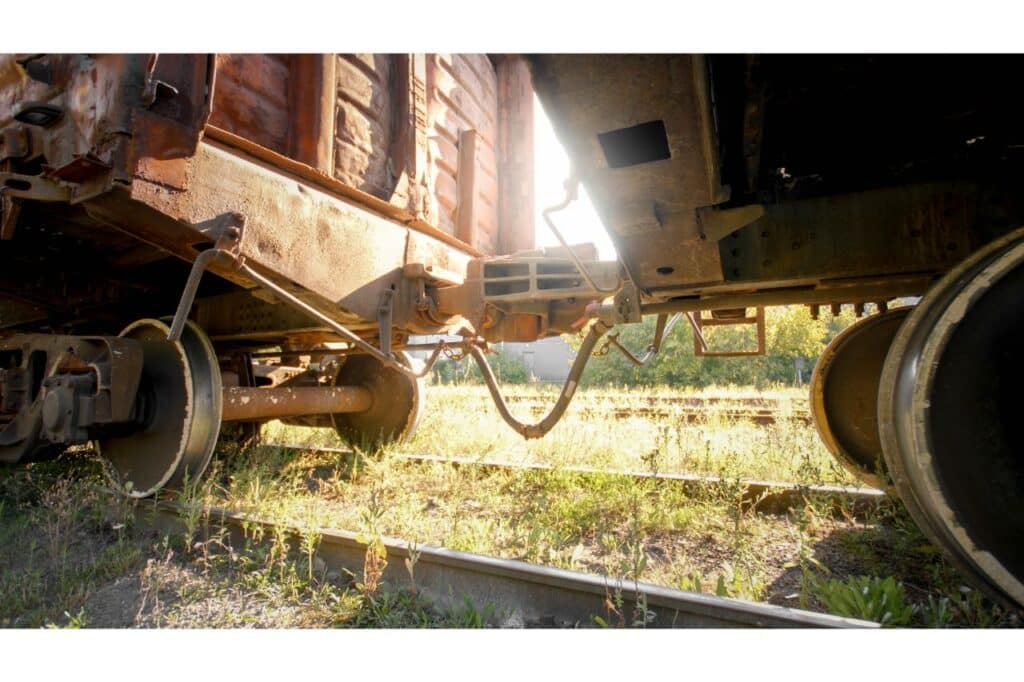If you’re looking for railroad jobs in Tennessee, then you’re in luck. The state is home to six out of seven Class I railways in North America! Only very few of the fifty states in the country can boast such distinction.

We all know that Tennessee’s topography is particularly bumpy. However, it is fortunate enough to have a well-developed rail network.
This is because so many of its major cities sprung up within its boundaries. These include Nashville, Knoxville, Memphis, and Chattanooga.
The Class I railroads in Tennessee are BNSF, CSX, Canadian National, KCSR, NS, and Union Pacific. These already give you a plethora of railroad employment opportunities to work with.
There are no regional railroads running through the state, though. But, Tennessee has a handful of shortlines.
There’s no shortage of railroad action, indeed. Its operations are highly diversified, too. The rail lines in Tennesee travel north, south, east, and west.
Overall, Tennessee’s railroads total about 2,600 miles of trackage. It’s also under the top thirty states in terms of total mileage.
Tennessee’s rails are also well known for housing the most historical railroads. This includes Nashville, Chattanooga & St. Louis, Southern Railway, Tennessee Central, and more.
Additionally, the state’s rails have a rich history with many Midwestern businesses.
Its legacies still live on until this day, despite its railroad abandonments. Railroads play a major role in Tennessee’s economy. It’s also one of the best sectors to work in.
And today, we’re here to help you start your railroad career. In this post, we compiled all the railroads in Tennessee that you can apply for.
We also discuss the state and economic value of the industry. And finally, we added in some tips and pointers for new prospective railroaders. Let’s begin.

The Economic Value Of Tennessee’s Railroads
Tennessee’s economy and the state’s railways have risen in conjunction throughout the years. Of course, railroads are not the only transportation mode in the state.
They are part of a collective entity including trucks, vans, and ports. These all work together to efficiently transport goods.
However, Tennessee’s railroads have a very distinct advantage: their scale. When it comes to rail freight, Tennessee accounts for over 220 million tons each year.
Rail hauls a wide variety of goods including food, vehicles, and locally-grown items.
For example, one single railcar that hauls corn can feed 37,000 broiler chicks for a lifetime. One coal-hauling railcar can also power 21 houses yearly.
Moreover, one locomotive train alone can transport over 700 cars. You would need hundreds, and even thousands of trucks and vans to keep up with these figures.
Because of the scale of rails, businesses can lower shipping costs and offer competitive prices. This, in turn, results in cheaper pricing for customers.
Furthermore, railroads provide their clients with better transportation options. Imagine if a company only used trucks to transport coal. This means that a coal plant can only use locally-grown coal or any coal within reach.
However, railroads can carry these from geographically scattered sources. In turn, it provides power plants with more and invariably cheaper alternatives.
On top of this, railways can decrease traffic on major highways such as the I-40. This also implies fewer emissions and less need for infrastructure upkeep.
Another great aspect of railways is their self-sufficiency. Privately freight railways are almost solely on in-house facilities. With that, they construct, finance, and administer their own network.
They can do this without government support, well most of the time.
And finally, the sector can generate thousands of jobs. The business is also known for its competitive wages and benefits.
Working In The Railroad Industry: What To Expect
If you’re new to the railroad sector, we highly suggest going through this portion of the post.
The truth is that a railroading profession is not for everyone. Railroading is typically portrayed as exciting, adventurous, and even fun.
However, this only stands true under certain conditions.
First and foremost, working for the railroad may be physically and emotionally taxing. Major freight railways run 24/7. Class I occupations frequently necessitate 12-hour shifts.
Schedules are also unpredictable. You can be called into work any time, even on holidays and weekends.
In certain cases, your employer may even move you to a different location or position.
So, expect that your life will change drastically. You’ll spend more time away from home.
Nevertheless, Class I roles are among the most well compensated in the industry. In addition, they provide a wide range of perks and retirement options. It can be a worthwhile tradeoff.
Apart from that, railroading is not stagnant. You’ll keep learning and growing. You can rise up the ranks if you put in the effort.
You may even make six figures in the years ahead. Click here to see a list of the highest-paying rail jobs.

If you don’t want to work long shifts, you may target class II or shortlines. They are, however, paid lower wages than Class I jobs.
Because of these reasons, some come to the conclusion that railroading is not for them. The final choice rests solely with you.
When it comes to being a railroader, it’s important to take a step back and look at things from a different angle. It’s definitely not a job to make “easy money”. So, think about it before you jump in.
Now, without further ado, let’s take a look at all your options in the state of Tennessee.
Class I Railroad Jobs in Tennessee
BNSF Railway
The BNSF Railway Company is one of North America’s seven Class I railroads. It maintains nearly 30,000 miles of track.
In addition, the company operates lines in 28 U.S. states and two Canadian provinces. BNSF is also the second-most extensive freight transportation line in the nation.
It carries a variety of commodities, including grain, coal, and multimodal freight.
BSNF currently offers many job vacancies. Click here to learn more.
CSX Transportation
This Class I rail network is also known as CSX and CSXT.
The CSX Corporation owns and operates this network. Moreover, they have been in business since the 1980s. It was once a holding company. However, as its companies grew, so did the system as a whole.
In 1999, it also acquired over fifty percent of Conrail’s infrastructure. In addition, they purchased Pam Am Railways by the end of 2022. It expanded its network coverage to include a large portion of New England.
Among Class I railroads in the United States, CSX ranked third. Their network is comprised of 34,000 kilometers of trackage.
CSX is also noted for having a diverse workforce when it comes to employment. Visit this page to discover more about what it’s like to work there.
Canadian National
The Canadian National is one of the seven largest Class I railroads in the country. It is also one of the two major networks in Canada.
Canadian National serves every region of Canada. In addition, it services the Midwestern and Gulf Coasts of the United States.
When the network was first established, it was owned and operated by the government. At the time, its major purpose was to link together abandoned and inactive lines.
Eventually, it became one of the most significant networks in the country.
It also became privately owned in 1995, and still is until this day. And currently, it offers a wide range of services and transports a spectrum of goods.
The overall length of Canadian National’s network is about 204,000 miles.
Learn more about Canadian National’s jobs in Tennessee by clicking here.

Kansas City Southern Railway
KSSR is the United States smallest Class I railroad. Their headquarters are situated in Kansas City.
The Kansas City Southern Railway is the principal north-south link. This railway links Central America to Mexico. Kansas City Southern also has a subsidiary, the Kansas City Southern de Mexico.
This network connects from the Central America-Mexico route.
KCS de Mexico serves the northern and central areas of Mexico. This covers Veracruz, Tampico, and port Lazaro Cardenas.
Overall this class I corporation has about 3,500 route kilometers, covering 10 states.
Click here to learn more about their railroad jobs.
Norfolk Southern
This Class I network is the second biggest network in eastern North America. In addition, they are famous for their trustworthy and solid administration.
A large chunk of the present-day Norfolk Southern was created via mergers. This comprises the Norfolk and Western Railway and the Southern Railway.
Likewise, they were well regarded owing to their track record of effective administration.
Norfolk Southern operates 28,400 total miles of track. The trackage rights for a section of these miles are also held by many companies.
Click here for further details on the Norfolk Southern railroad jobs available.
Union Pacific
One of the country’s earliest Class I railroads, the Union Pacific was founded in 1881.
Abraham Lincoln had a major role in the development of this network. Transcontinental railroad construction began in the late 1860s when President Abraham Lincoln signed the Pacific Railroad Act into law.
The United Parcel Service (UPS) is now the nation’s biggest in terms of yearly revenue and route kilometers.
Union Pacific has a total of 32,100 miles of track. It provides transportation to 23 different states in the western part of the nation.
Click here to learn more about Union Pacific railroad jobs in the state.
Class III Shortline, Terminal, and Switching Railroad Jobs in Tennessee
Caney Fork & Western Railroad
This shortline has been around since 1983. All in all, it operates 61 miles or 98 kilometers of trackage.
It connects with class I CSX Transportation at a variety of locations in the state. This includes Tullahoma, Mcminnville, and Sparta.
They are presently an Ironhorse Resources subsidiary.
It mainly hauls lumber, fertilizer, propane, tires, and carbon black.
Learn more about them and their current jobs on their website. Click here.
Chattooga & Chickamauga Railway
Since 2008, The Chattooga and Chickamauga Railway is a G&W-owned shortline.
This shortline used to operate over an old Tennessee, Alabama, and Georgia Railway track.
Its route stretched to Kensington from Chattanooga. However, this route is now removed.
Currently, it operates through Berryron, Georgia, and Chattanooga.
All in all, this shortline operates 55 miles of trackage.
Visit Genesee & Wyoming’s website to learn more about this shortline. Click here.
East Chattanooga Belt Railway
Approximately four miles of track belong to this terminal and switching shortline.
They are maintained by the state’s Valley Road Museum.
East Tennessee Railway
This is another Genesee & Wyoming-owned shortline in Tennessee.
The East Tennessee Railway operates a total of 14 miles of trackage.
Its lines run through Elizabethton and Johnson City.
Visit Genesee & Wyoming’s website to learn more about this shortline and their railroad jobs.
Franklin Industrial Railroad
The Franklin Industrial Railroad runs roughly 16 miles of trackage.
This shortline spans from Crab Orchard and Harriman Junction.
Contact the company directly for more information.
Kentucky West Tennessee Railway
Another Genesee & Wyoming-owned shortline in this list is the Kentucky West Tennessee.
This shortline runs two disconnected tracks. Overall, it totals 70 miles of trackage.
Visit Genesee & Wyoming’s website to learn more about this shortline. Click here.

Knoxville & Holston River Railroad
This class III shortline has been around since 1998. Currently, they are a Gulf and Ohio Railway-owned network.
All in all, this shortline operates 20 miles of trackage.
Its tracks run through the Knoxville vicinity. From this line, it connects with two class I networks. This includes Norfolk Southern and CXS Transportation.
Moreover, they do tourist train activities under the name Three Rivers Rambler.
Visit Gulf & Ohio’s website for more job-related information. Click here.
Mississippi Central Railroad
The Mississippi Central mainly serves Oxford and Grand Junction.
Their lines also connect with BNSF and Norfolk Southern. These connections meet in Holly Springs and Grand Junction, respectively.
And currently, they are owned and operated by Pioneer Railcorp.
They also acquired the Redmont Railway in 2013. Additionally, the Tishomingo Railroad was acquired in 2015.
This shortline primarily carries fertilizer and wood.
All in all, this shortline totals 51 miles of trackage.
Visit the website of Pioneer Lines for more information on theri railroad jobs. Click here.
Nashville & Eastern Railroad
This shortline commenced in the 1980s. Currently, they operate 130 miles of track. Its lines serve the towns of Monterey and Nashville.
They do tourist or excursion routes from time to time. Learn more by clicking here.
Begin Your Railroad Career With These Railroad Jobs in Tennessee!
There you have it, a list of all the railroad job opportunities and potential employers in Tennessee. As you can probably tell, you’ve got a slew of options.
With six class Is in the area, your bound to find a railroad job perfect for you. You’ve also got a ton of shortlines to work with.
Tennessee is definitely a good state to start your railroading career.
But, having many options doesn’t always mean that job hunting will be an easy journey. Sometimes, it might take a while to find a job that suits your needs.
And oftentimes, the job market can also become competitive. Some companies also take longer to get back to applicants. But, don’t allow yourself to get demotivated.
Keep looking, stay positive, and you’ll find one soon enough. Remember, look at the big picture.
If you are, however, widening your options, we can help you. Check our railroad jobs per state. Click here.
And if you’re interested in learning more about the sector, keep checking back on our site. We cover different topics on railroading.
This finally leads us to the end of our railroad jobs in Tennessee. We wish you all the best in your job search and railroad career!
